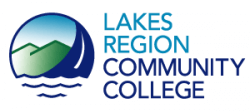Frequently U.S. policy makers portray the United States as a benevolent neighbor, seeking to help the countries in its “backyard.” Many Latin Americans disagree with this view, and think more critically about the motivations and legacies of U.S. intervention in the Western Hemisphere. To understand these disagreements, this course applies theories of international relations to analyze pivotal events in the history of U.S.- Latin American relations. Following a brief review of key theories of international relations, this class will critically examine the relations between the United States and the Latin America countries from the time of independence to the present, relying upon academic texts as well as first-hand accounts of U.S. and Latin American political actors. Given recent events, we will highlight Cuban-US Relations from 1898 to the present. Some of this material is very controversial. To address such controversies intelligently, this course stresses the importance of supporting theory with factual evidence from historical and/or current events. Throughout the course, students will develop the analytical, written, and oral skills they need to form their own opinions on U.S. foreign policy towards Latin America, and defend these opinions articulately based on a solid knowledge of historical and current events.
© 2024 - Lakes Region Community College

